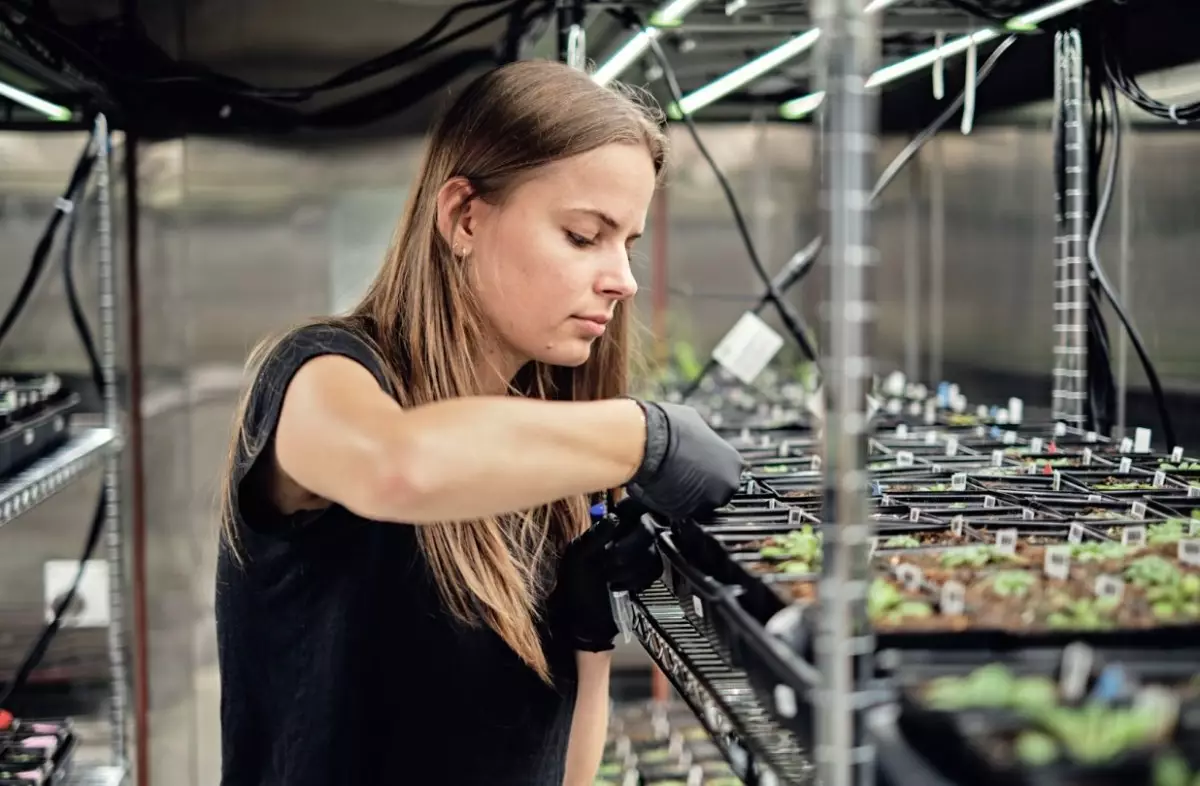In a significant announcement this week, Google’s X Lab, often referred to as the “moonshot factory,” introduced its latest spin-off, Heritable Agriculture. This innovative startup seeks to revolutionize the agricultural sector through the application of data analytics and machine learning. The overarching aim is to address some of the most pressing challenges in farming today, including sustainability, efficiency, and resource preservation. The firm’s ethos emphasizes a perspective on plants as remarkable biological entities—self-sustaining systems powered by sunlight and carbon, yet the critical challenge lies in harmonizing plant efficiency with agricultural practices that are increasingly detrimental to our planet.
Agriculture, while essential for sustaining the global population, poses a significant environmental threat. It is responsible for roughly 25% of greenhouse gas emissions attributable to human activity and is the largest consumer of vital resources like groundwater. These alarming figures underline the need for innovative solutions that not only amplify food production but do so in a way that fosters environmental stewardship.
Heritable Agriculture’s journey begins by acknowledging the pressing issues that modern agriculture faces. Traditional farming methods often exacerbate soil erosion, deplete water resources, and contribute to pollution through the use of harmful pesticides and fertilizers. As the planet grapples with climate change and resource scarcity, the need for a transformation in agricultural practices has never been more urgent. Heritable aims to pave the way for contemporary farming techniques that could reduce environmental degradation while enhancing crop yields.
The crux of their mission lies in the utilization of advanced data collection and artificial intelligence to drive agricultural practices into the 21st century. However, the startup’s founders are acutely aware that merely gathering data is not sufficient; they must convert that data into meaningful strategies that can be readily adopted by farmers. This transition from raw data to actionable insights requires meticulous analysis and a deep understanding of agricultural science—a challenge that offers both potential rewards and pitfalls.
Leading this ambitious initiative is Brad Zamft, founder and CEO of Heritable Agriculture. With an impressive academic background, including a PhD in physics, Zamft has significant experience in both the philanthropic and commercial sectors. His previous roles at the Bill & Melinda Gates Foundation and successful leadership at TL Biolabs have equipped him with insights into the complexities of agricultural development. Joining Google X marked a pivotal moment in Zamft’s career, providing an environment ripe for innovation and experimentation.
Under Zamft’s leadership, Heritable Agriculture has quickly capitalized on the research capabilities available at Google X. The startup endeavors to harness machine learning to explore and analyze plant genomes, seeking optimal combinations that promise improved yields while consuming less water and increasing carbon storage. Zamft articulates a clear but cautious approach: while gene editing technology, like CRISPR, holds potential for future applications, Heritable currently relies on traditional breeding methods to fulfill immediate market needs.
One of the fundamental philosophies of Heritable Agriculture is to prioritize commercialization as they develop their technology. By shifting focus toward actionable outcomes and market readiness, the company is positioning itself strategically in a competitive landscape. Although specific timelines and partnerships remain undisclosed, the seed funding garnered from notable investors, including Google and various venture capital firms, reflects the confidence in Heritable’s vision and capacity for substantial impact.
As the agricultural sector stands at a crossroads, the emergence of companies like Heritable Agriculture signals a promising shift toward sustainable farming methodologies that leverage technology and innovation. Zamft’s leadership and the foundation laid at Google X present an opportunity to shift the paradigm of agriculture, potentially transforming an industry that has long operated in environmentally untenable ways. The journey of Heritable Agriculture is just beginning, but the implications for global farming practices and environmental health could be profound. As the world continues to demand efficient food production, solutions born from ingenuity and technological advancement may finally offer a way forward for sustainable agriculture.

